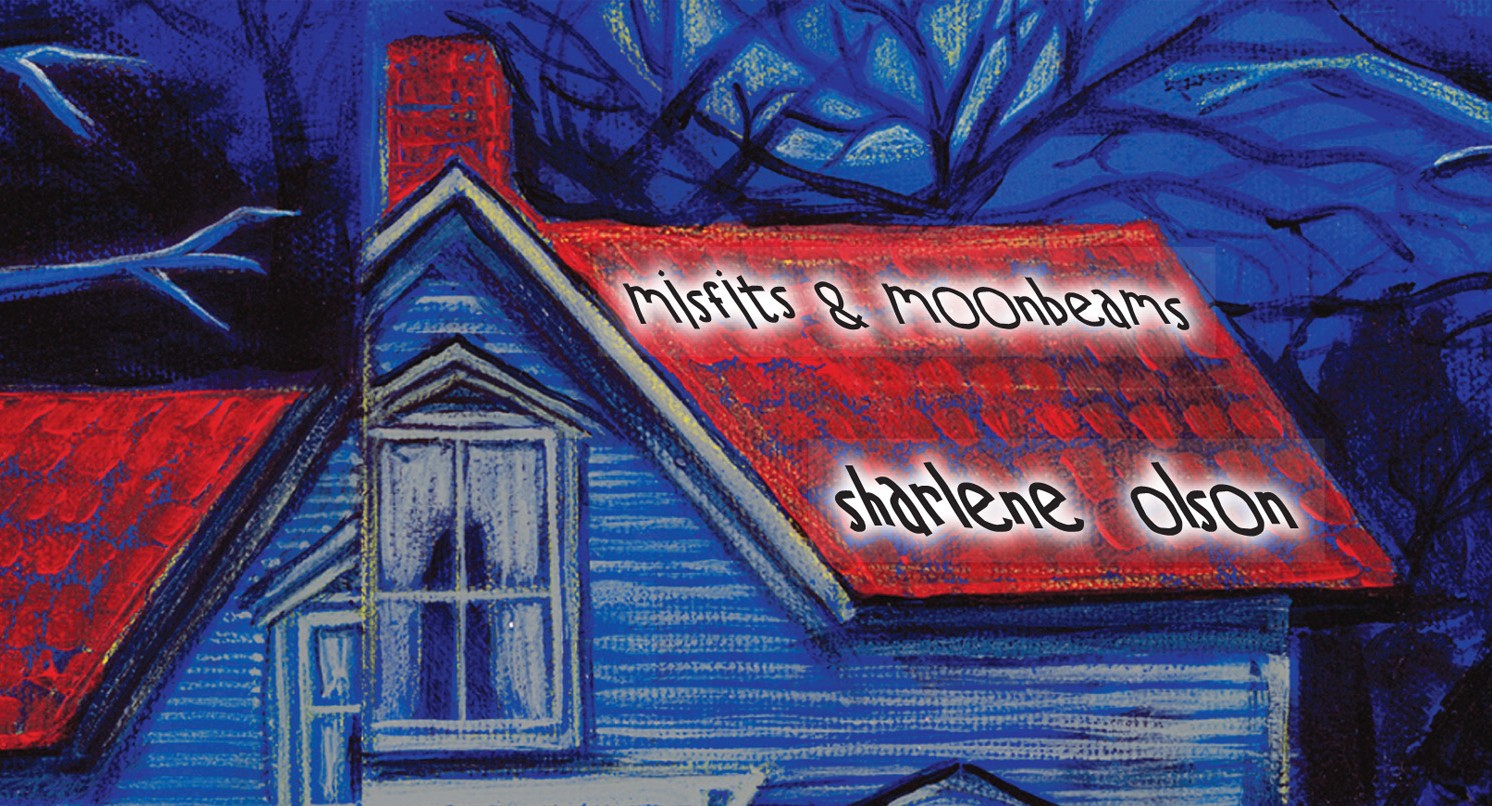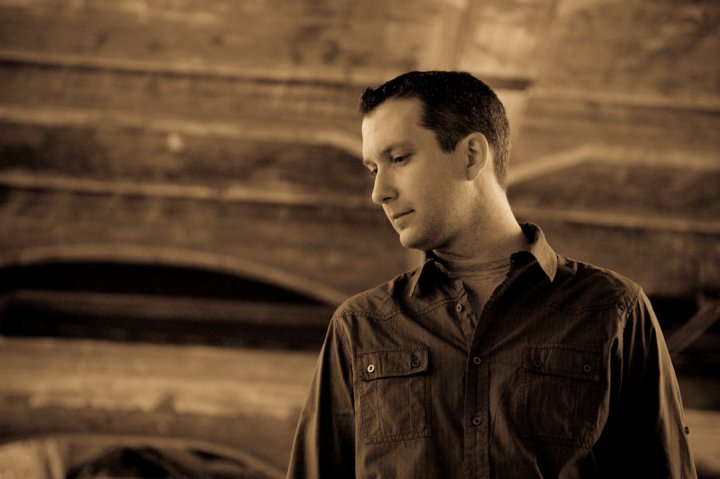Your distinct identity
- At December 10, 2013
- By Nathan
- In Effective living
 0
0
Who could possibly have a problem with the declaration that each person has a distinct identity? What could be so bad about that? How would this observation cause harm?
And yet, from what I have recently discovered via Dallas Willard, some people strongly oppose this message because it implies that you and I are unable to completely define ourselves; and apparently, they don’t like that. Go figure.
No one is invincible or infinitely flexible. And people know that. Deep down, they know.
If we are honest, though, perhaps all of us have felt this way. We want to be what we know we are not. We feel inclined to do what we suspect we should not. At times, we desire to live in a world without any personal limits or boundaries. Oh, we want other people to have boundaries so we don’t get hurt…as we go about doing our own thing. If only life worked that way.
For some reason, we feel that the options available to us are not near enough. It is so difficult to be creative and content with what we have been given. And so, human beings have a bizarre tendency to keep pushing and pushing until we can finally impersonate our Creator. Would you agree?
But a small dose of reality quickly reminds me that I am never going to be a professional ballerina or a flamboyant extrovert. Not in a million years. And no matter how hard I try. This is definitely not going to happen. Admittedly, ridiculous observations like this are not controversial and don’t tend to get people worked up. The I-will-define-myself-however-I-please talk usually has specific moral and often sexual implications.
Anyone who wants to live in an “anything goes” world will not be happy being reminded that there are limits and lines which are not a good idea to cross. Especially since this will likely also contradict and challenge their naturalistic ideology. Be warned: Some people really take offence if you mess with their understanding of the Secular faith. Don’t expect a friendly conversation or dialogue.
But does anyone who pushes the limitless self-definition position (atheist or otherwise) really believe what they say? I doubt it. Not unless they’ve had too much to drink the night before or the music is turned up really loud. No one is invincible or infinitely flexible. And people know that. Deep down, they know.
And yet, the claim that God created each one of us for a specific purpose – and that it is a good idea to try to figure out what that might be – is now taken to be an oppressive statement in some circles. For all I know, at this very moment some self-righteous lawyer is working behind the scenes to censor such claims as contrary to human rights. So I might as well finish this post while I still can.
A question to consider: Where do you suppose most of the freedom is to be found in the world today?
Is it over in the old Soviet Union, where oppression and control and corruption and atheism runs rampant? Hardly. Well, how about the part of the planet that can’t be mentioned without the threat of violence? Would you like to move your family over there? Then, of course, there are all the little liberal universities here in the West to consider; places where young people are encouraged to think for themselves as long as they believe what they are told. Have you ever wondered why a typical college is filled with post-modern clones?
No, it hasn’t been all sweetness and light in the West to be sure. But the oppression that has sometimes taken place in the name of Christianity pales in comparison to what happens when another gospel – and particularly a naturalistic gospel – firmly takes its place. If you doubt this, attempt to do that math. Or try to picture what life might be like for your great-great-grandchildren.
Sure, I can sympathize with anyone who has been stamped with some sort of label or definition which served to distort their true identity. It is sad to hear about such things. It really is. And we have probably all done this at one time or another. This type of distortion and abuse happens everywhere – even in church. But again, this only really matters if you and I have a firm identity in the first place.
If it’s okay to define yourself however you please, what is to prevent someone with more power from defining you however they please? And if it comes down to who can yell the loudest, who do you think will win?
© Career & Life Direction 2013. All rights reserved.
Seeking and finding
- At October 20, 2013
- By Nathan
- In Effective living
 0
0
We all know that it’s a good idea to get as much good advice as we can. It just makes sense. Why pretend to know more than we actually do? We’ll just end up hurting ourselves.
But this whole quest for sound advice takes time and effort. Searching for wise counsel sometimes feels like a full-time job!
In the past few weeks I have personally benefited from talking to a friendly lawyer, a couple equally friendly accountants, helpful folks at Revenue Canada (yes, these people exist), two or three knowledgeable mechanics, somebody at my bank, and a few informed family members.
Are you about to experience a frantic, advice-getting frenzy? May I suggest an extra shot of strong coffee early in the morning. Or two. The caffeine-kick will come in handy.
This recent and strenuous exercise reminds me that good counsel does not usually drift in our direction – like a bright helium balloon floating down from the sky. No, we need to go out and search for it until we find it. And yes, this takes time and involves hard work.
You likely knew that already. But perhaps I needed to be reminded – again.
For many people “hard” is out and “easy” is in. If anyone had asked, I would have suggested making everything in this world a little easier. Wouldn’t you? How about a room-service world? A “nice” world? One where everything came together for everyone all the time. You know, Hakuna matata! But nobody asked for my opinion or yours.
Effort is required on our behalf, often much more effort than we may care to admit. Although many of us are still trying to find a way to get around this.
Come to think of it, this common combination also indicates how much energy is usually required to determine what is true. Information and advice needs to be evaluated. But so do worldviews. Oh, it’s easy to be agnostic. It doesn’t take much of an effort. At all. Anybody can sit back and voice such an opinion. People do.
A couple of questions for these folks to consider: How can you expect to find out what is really true if you never really try? And why should you be surprised if critical questions remain unanswered and you feel confused?
Refusing to search for good advice means that you probably won’t find any. Not much anyway. That’s how it works. In the same way, being apathetic or casual about what is true means that you’ll likely always have reason to be agnostic. Nothing will ever change.
It works the same way with God. If you really, really want to know God…you will. If it feels like God is hidden and distant, that’s because God often is. These observations are hardly original with me. Did you ever enjoy playing hide and seek when you were a kid? If that special someone really cared they would make an effort to get to know you, wouldn’t they?
Don’t forget about the mercy and grace and initiative and generosity of God. But also remember – always remember – that we each have a role to play.
This seeking-and-finding recipe will sound simplistic to some, but may I suggest that it is often impossible to avoid. I prayed, “Oh, God…please make it quick and easy to write this blog post.” But it didn’t happen. It never does.
Of course, seeking doesn’t always come with an immediate and 100% finding guarantee. Timely advice, clear conviction, and intimacy with God may sometimes feel beyond our grasp.
But when in doubt, it is always a good idea to keep searching: to keep asking and seeking and knocking and praying and trying to understand. So don’t give up. Don’t abandon your quest.
Whatever you do, don’t quit now.
© Career & Life Direction 2013. All rights reserved.
My responsibility
- At August 29, 2013
- By Nathan
- In Effective living
 0
0
As you may have noticed, each one of us has a limited amount of time, energy, and money. Yes, I know, especially money. We just can’t be all things to all people or do absolutely everything for everyone. It’s impossible. And life gets crazy – really crazy – if we try.
But how do we know what is our responsibility and what is not our responsibility? This simple question is not always easy or straightforward to answer. Part of the problem is that each person is unique: We are similar and yet different. So my answer won’t look exactly the same as yours.
If, however, there was a reliable way to be able to say, “This is my responsibility and that is not!” we would find ourselves in a much better position. By way of a few examples, then:
- We could avoid getting sidetracked so quickly
- We could focus our time and energy more effectively
- And we wouldn’t feel as frazzled and frustrated
Here is a brief exercise that could help you begin to clarify what you are personally responsible for. And it is quite simple, really.
Take a sheet of paper and draw three parallel lines that create four separate sections on your page. Then in the top left-hand corner write, “What is not my responsibility.” May I suggest that you emphasize the word “NOT” dramatically. If you have small children, bring one of them in with their crayons and let them go to work on this word.
You will be able to come up with all sorts of things that you are not responsible for. To get you started, though, here is what I wrote under this heading on my page: “I am not responsible to solve every problem facing every single person on this planet. God can, but I can’t”
Moving to the right, imagine that the first line you meet on the page is a concrete wall much like a temporary barricade yet up on a highway construction site. It is possible to regularly cross this line with extra effort, but it isn’t a good idea.
Then, from the vantage point of the second section of the page, write, “What is possibly my responsibility” at the very top. When in doubt, it is a good idea to begin with what is obvious and work towards what is less clear. This is where you will write down issues and situations that leave you scratching your head and wondering. It would be entirely appropriate to draw a question mark, or maybe a few, somewhere in this section.
Here in Canada, a runaway train loaded with oil recently slammed into a small town and burst into flames destroying much of the downtown core. Naturally, many people felt horrible about this tragedy and wanted to help in any way they could. All sorts of businesses began raising funds for the people in this town. But I wasn’t sure if this was a cause that I should attempt to support in a significant way or not. I just wasn’t sure. It was difficult to decide.
Crossing the second line, which appears to be a neat row of pylons a vehicle could drive through, you reach the other side. At the top of this section write, “What is partly my responsibility.” As you may have guessed, this is where you will record the tasks and projects and duties which you clearly share with other people. In many cases, you know that you have a role to play even though it isn’t the main part.
I don’t know how things work in your home, but in ours my wife tends to make most of the meals while I usually deal with the dirty dishes. Creativity is her strong point while dealing with background grunt work is my forte.
The final boundary line is the least obvious. Picturing a bright yellow line running down a piece of pavement should do. This fourth and final section is the most important and brings us to the main point of this entire exercise.e. For this is where you will write down, “What is my responsibility.” To hammer the point home more clearly you could write, “What is obviously and undeniable my responsibility!” And yes, it may be time to bring Billy back in with his crayons and set him to work on another word.
This is what you would read at the very top if this section on my page: “It is my responsibility to clarify my career and life direction. I can’t expect anyone to do this for me.” I need to decide and so do you.
*This post is also available in a YouTube video format
© Career & Life Direction 2013. All rights reserved.
What is right for you
- At June 03, 2013
- By Nathan
- In Effective living
 0
0
“It’s too bad the moral relativists got to define this phrase,” my thoughtful wife said one evening during dinner, “for so often what is right for one person is not what is best for another.” Setting my fork aside to pay more attention, I wondered what she was getting at.
As we talked, the problem became more clear: An observation that had some merit (i.e. “That is right for you but not right for me”) had routinely been applied in situations where it didn’t make sense. Go figure. And now, this distorted use of language had become so entrenched that it was almost impossible to talk about legitimate individual freedoms and preferences without being misunderstood.
A useful phrase had been hijacked and in the process an important emphasis had been obscured. Did it sound too strong too put it that way?
From the vantage point of our kitchen table, it was appropriate and even urgently necessary to find a meaningful way to talk about significant personal distinctions because, well…let’s face it: A lack of understanding is all too common as is outright control. Treating potatoes exactly like broccoli wouldn’t make for a tasty meal or result in winning any cooking awards. But that’s what tends to happen when human beings mix and mingle. Bob the tomato gets blended together with Larry the cucumber into one big indescribable mush.
One word aptly describes this culinary concoction: Yuck.
It needs to be said that this radical redefinition can be unconscious and unintended; it just happens – almost as an aside. But this distorted way of relating can also be very active and intense.
Be warned: For every person who genuinely wants you to thrive as a distinct human being you are bound to meet dozens who merely want to plug you into some program or make you fit into what they’ve got going on. In the process, if all goes well you will appear to be a little bit less successful and so make them feel good about themselves. Sadly, it’s the way things work in this be-like-me world.
This prevalent pattern does make a person sometimes wonder if there are any truly secure people on the planet.
Western culture is usually considered to be highly individualistic, and it is comparatively speaking. But even in Canada, the USA, or Europe, etc. you will find no shortage of people and organizations who try to control very personal aspects of your daily life. Yes, you can count on being controlled even in the center of the free world.
Is it possible to have too much freedom and too much control, too much of one and too much of the other? Apparently it is. A cultural tendency to deny real boundaries and bedrock truth in the name of freedom doesn’t seem to prevent very many from trying to force their opinions on others. This harmful way of thinking and living results, more often than not, in people being way too open and much too closed, critical and controlling at the same time. It’s a lose-lose situation. Not good.
We fail to take a stand when it is necessary; and then turn around and take a stand when there is really nothing much to stand upon.
People can believe anything they like or nothing at all. Oh yeah, the universe will be sure to quickly adjust. But, doesn’t everyone know, for example, that proper and normal English is only spoken in southwest Saskatchewan by third generation Scandinavian immigrants? Didn’t know that? Well, now you do. And with any luck the Supreme Court and the U.N. will be sure to remind you.
Each person has some weird idea lurking deep in their soul that they might feel inclined to force on others if given the opportunity. Don’t they?
To be fair, it isn’t necessary to be a part of the controlling liberal tradition in order to fall into the very same controlling mindset. Denying the truth about human beings is one way to take the tumble. But ignoring the truth will work just fine.
Working through a well-established personality inventory not too ago, it became apparent that I was quite a bit different from the woman I had married. How about that? Actually, I discovered that we were different in almost every way. Amazing. Isn’t it strange how you can know someone for many years and yet not really know them at all? And suddenly it also became uncomfortably obvious that my personality had been on a covert mission over the years to control the personality that happened to be close by.
“Why can’t you be more like yourself?” Has anyone asked you that question lately?
© Career & Life Direction 2013. All rights reserved.
Whacking the wasps
- At March 19, 2013
- By Nathan
- In Effective living
 0
0
Would you prefer to be known as a spiritual person or a religious nutcase? Which word combination has the most positive connotation? Take your time. Think it over.
And yes, this would be one of those annoying (okay, very annoying) rhetorical questions. Sorry about that, but I needed a snappy introduction.
In many social circles, spirituality is viewed as being neutral and entirely positive. It’s all good. Meanwhile, religion – and particularly Christianity – is said to be negative and oppressive; it isn’t considered to be modern or moderate or progressive. Which is to say, that it’s almost all bad. No, it doesn’t take long before you get the distinct impression that traditional religion is out and designer spirituality is in.
From this precarious vantage point, bad things are sure to happen in post-modern paradise if too many people get too religious. That would be dangerous and very scary.
That’s right. Spirituality is said to be a bright ray of inclusive and politically correct sunshine in a dark and dogmatic world. This sophisticated lingo sounds lovely; it gets the certified stamp of approval. We hear it all the time. Many people take it on their tongue. And many in the West also take the tonic that is implied by this term. For this is how folks with a materialistic mindset attempt to chase their bad old nihilistic blues away.
It isn’t, however, much of a news flash to say that this technique doesn’t work. How could it? But some people still try to inject meaning and purpose into their lives by way of this long shot and haphazard method. They grasp at anything and everything.
Even now, my brain is beginning to shut down and the haze is setting in at the mere mention of this magical term.
It is interesting how a limited step of faith is rejected nowadays in favour of a wild and reckless leap into the spiritual beyond. Which brings up the question parents often ask their kids in the context of less-than-positive peer pressure; a question I was asked the other day in the context of my poor driving habits:
“If that guy up ahead of us decided to drive off a cliff, would you?”
Well, no, not exactly, I mean of course not. But I did seem to be drifting in that general direction. And it’s a good thing my wife was paying attention.
Longing for meaning and direction in life, searching for guidance, some young people unfortunately do what amounts to just that. In the name of freedom and individuality, they wander towards the edge of some well-known precipice and dutifully get in line to drive or jump off. Each new generation makes the same sad mistakes.
Spirituality isn’t all bad but it certainly isn’t all good either.
What am I getting at? Simply this: The spiritual world has a well-established dark side. While making contact with a variety of spiritual beings is possible, it is not recommended. There are consequences, and sometimes very unpleasant one. In other words, you really do not want to be messing with some powerful spiritual beings. Sure, people do it all the time – barging on in where angels fear to tread. But please, don’t go there. Don’t do that.
Of course I take it as a basic fact of life that unpleasant spiritual beings actually exist. For every crank who makes this sort of talk sound foolish, there are ten common people who will tell you in plain terms that this is so. For every condescending professor who has the leisure to live in his head, there are at least twenty ordinary guys who must deal with larger realities.
And life is hard enough without going out of your way to connect with dangerous spiritual realities. So put the stick down and back away as quickly as you can.
© Career & Life Direction 2013. All rights reserved.
Coming to life
- At February 25, 2013
- By Nathan
- In Effective living
 0
0
What would he like to have said at his funeral? G.K. Chesterton thought for a moment, and then responded with these four words: “Look! He’s moving!”
How would you like to hear this brief statement declared at yours? This shocking comment would surely make for a memorable and very short eulogy. Anyone who managed to remain conscious would be talking about what took place in the next few moments for years to come.
“He’s what? What did that nice man just say, dear?”
“Oh, something about old Gilbert moving around or some such thing. If so, it seems we are going to be missing out on a nice lunch. Hey, wait a minute. What’s with all the commotion over there by the casket? What in tarnation is going on here? Hang on to your hairnet Hannah: Gilbert is moving; he’s baaack!”
Imagine what it would be like to watch someone actually come back to life. Wouldn’t it be terrifying and absolutely amazing? One minute the atmosphere is somber, sad and subdued. Grief hangs over the gathering; hope is hard to come by. Not much is going on. And the next…well, it depends on where you live, but even in the most reserved society everyone present would likely be freaking out.
If there ever was a time to cut loose and get hysterical, this would be the time. A sudden sign of life, even if it is ever so subtle, is something to celebrate.
As you may have noticed, dead people have a tendency to stay dead. This observation is nothing new. That’s just the way it is. Each new generation makes the same sad discovery. Some things never change. And it feels like it has been going on like this forever. There is a time to be born and a time to die. Tragedy strikes someone each day. Death hits hard. And it hurts deeply.
That being the case, it is awfully difficult to upstage a resurrection. What could you possibly recommend as an encore presentation? Watching the Oscars?
On another occasion, good old G.K. mentioned that although he didn’t mind being told that he was going to die, it was also nice to be reminded every now and then that he wasn’t dead yet. What was he getting at?
As a practicing catholic, this kind and clever comment was directed towards some of his Christian teachers. What was the problem? My guess is that there had been a little too much emphasis on preparing for death and a not quite enough teaching on how to make the most out of his life.
Death is certainly not to be trifled with. But then again, neither is life. Each life matters. Every person counts. But the problem is that consciousness and motion do not necessarily indicated the presence of life in any substantial sense or form. Is it possible to be technically alive and yet mostly dead? Sure it is. This happens all the time.
Take this computer for instance. Several days ago it was hit with a debilitating virus and virtually everything froze up and shut down. At one level it still worked, in the sense that you could turn it on, but nothing really worked. The screen lite up but that was it. While I doubt if a requiem has been written for such a specific occasion, it would have been entirely appropriate to play one.
From my perspective, there were very few signs of life. My old laptop had become mostly dead and practically useless. One minute it was functioning fully and the next it barely worked at all.
During this computer downtime a book by Tony Campolo called Carpe Diem or Seize the Day caught my attention. While dealing with a mostly dead device, I read about Dr. Campolo’s experience dealing with mostly dead people. That was his impression, anyway. It seemed that wherever he went he ran into “dead” people. Many students at the university where he worked seemed to be apathetic about life. And then when he travelled and spoke at a variety of churches, he often observed the very same thing.
My impression is that Mr. Campolo wrote this book not out of a desire to find fault or to criticize and condemn. He wrote it rather partly to avoid such a problem in his own life and partly to help other people find a way to come back to life. And the solution he offers is not simplistic.
Have you ever felt dead? Have you ever thought that there has got to be more to life than this? Who hasn’t? Be encouraged. It is possible to eventually find a way to come back to life.
© Career & Life Direction 2013. All rights reserved.
Helpful communication
- At February 14, 2013
- By Nathan
- In Effective living
 0
0
There are different ways of communicating. And some ways are better than others. If a friend has borrowed a book or a CD, and you would like to have it back, there are a variety of options.
You could, for example, hire a plane to fly over his house pulling a big, bright banner with bold letters that cry out, “Give me my book back!!!” That is one scenario. Your rogue pilot could be instructed to do one flyby after another, lower and louder, again and again, until the message gets through or the police arrive to shut down this disturbance of the peace.
Ideally, a classic WWII Spitfire plane would work best. And don’t forget to arrange to have an old air raid siren blaring – wailing – right across the street. Fire off a few flares to add to the excitement and pandemonium in the neighbourhood. Do what you need to do to get attention and action. Go crazy.
Quite a few books, etc. could find their way back home this way. But whether or not this is the best way to maintain healthy relationships (and avoid getting arrested) remains to be scene.
If the plane idea sounds too risky, you could always hire a media company to make a short video about your dilemma. Then, post it on YouTube. What do you think of that? Let the entire Internet world know about your missing book and your forgetful friend. The producer could take a more tactful and subtle approach. This video clip could open with an image of you staring mournfully at your bookshelf with U2‘s old song “I Still Havn’t Found What I’m Looking For” playing softly in the background.
As the picture expands, the camera could turn towards the calender and the clock on the wall in your office. Eventually the office window would come into view. A rapid succession of images depicting the changing of the seasons and the passing of time accompanied by Chilliwack’s old song lyrics, “Gone, gone, gone, she’s been gone so long, she’s been gone, gone, gone, so long!” would complete the effect.
When the production is complete, post a link to your video on Facebook. Give your friend a few days to notice it. Wait for their response. It sounds crazy, but it just might work.
But if your friend wasn’t home during the plane ordeal – that day when the landing gear hit the satellite receiver on the roof and knocked out their Internet reception. Well, then you’ll have to look into other options.
If you live in Canada, there is also the bizarre possibility of submitting a complaint to your local Human Rights Tribunal. That’s what people do these days. Contact the quasi-kangaroo court early on. Appeal to some recently established human right not to have your precious book held hostage for an extended period of time. A “right” that is by now most assuredly enshrined in some charter document somewhere.
Yes, it’s a strange world after all. It’s a strange, strange world.
With any luck, this overdue book borrowing offense is now considered to be a hate-crime as opposed to a love-crime. And by all means, say that you have been offended and that your feelings have been hurt. Work the system. That’s how it works.
Your preoccupied friend will likely notice an official letter in the mail threatening legal action if the aforementioned piece of personal property is not returned to the said owner in good condition and in a timely fashion. But what if he happens to be away on business and never reads this nasty letter? What then?
In that case, you may need to take your campaign to the old-fashioned air waves (i.e. the radio) in order to contact your incognito friend. It is a long shot, but you could call up Carly Rae Jepsen and see if she might consider quickly reworking her famous teen-infactuation song, “Call Me Maybe.”
If all goes well, your old friend will be driving back to his damaged home when he hears, “Hey, you have my book. Bob, this is crazy. So please return it. Or you’ll have to pay me.” A few more miles, and there it is again: “Hey, you have my book. Bob, this is crazy. So please return it. Or you’ll have to pay me.”
Meanwhile, Bob most likely forgot all about that book and is wondering why in the world you didn’t give him a call if you really wanted it back.
© Career & Life Direction 2013. All rights reserved.










































